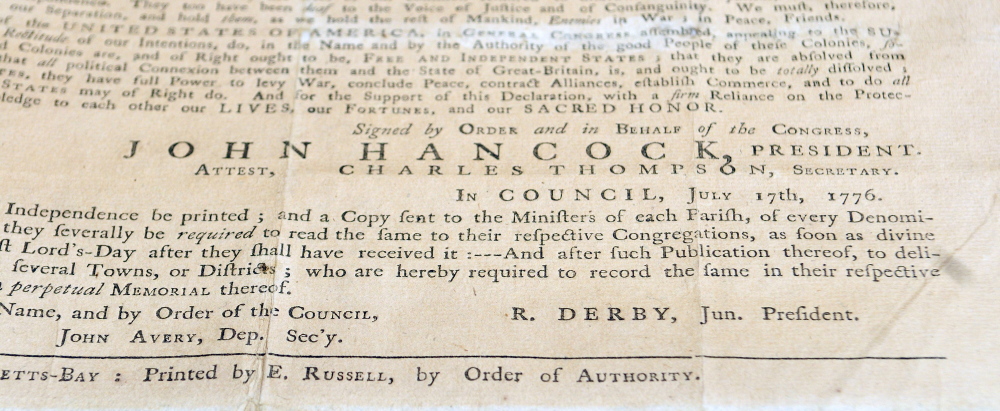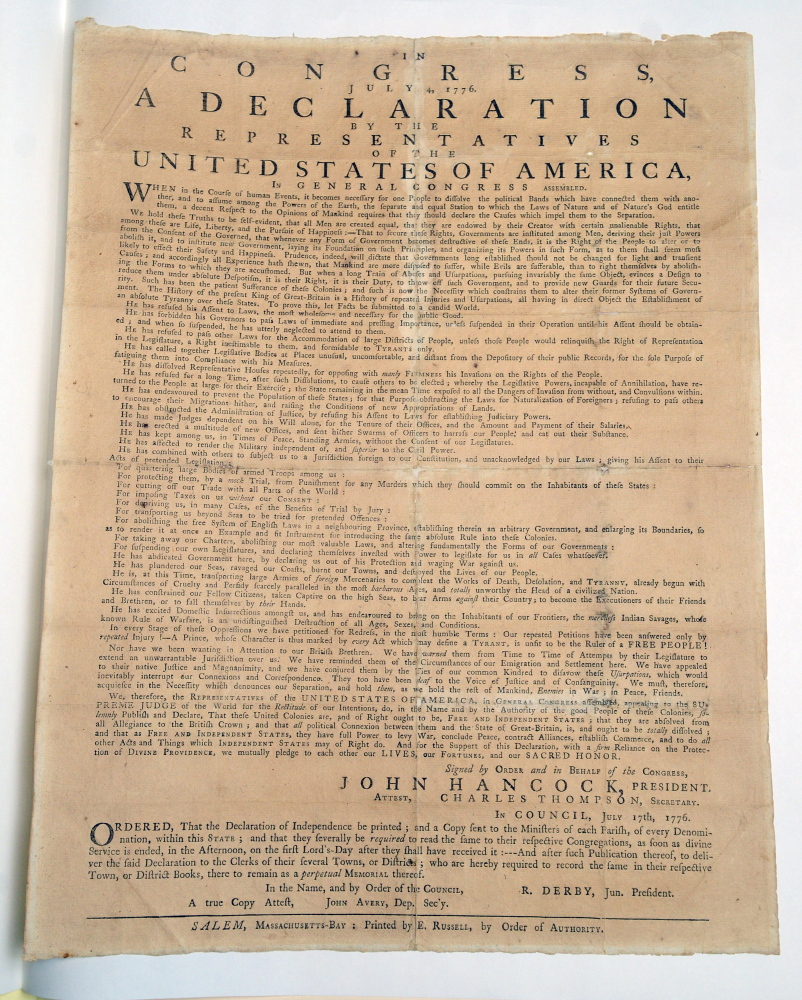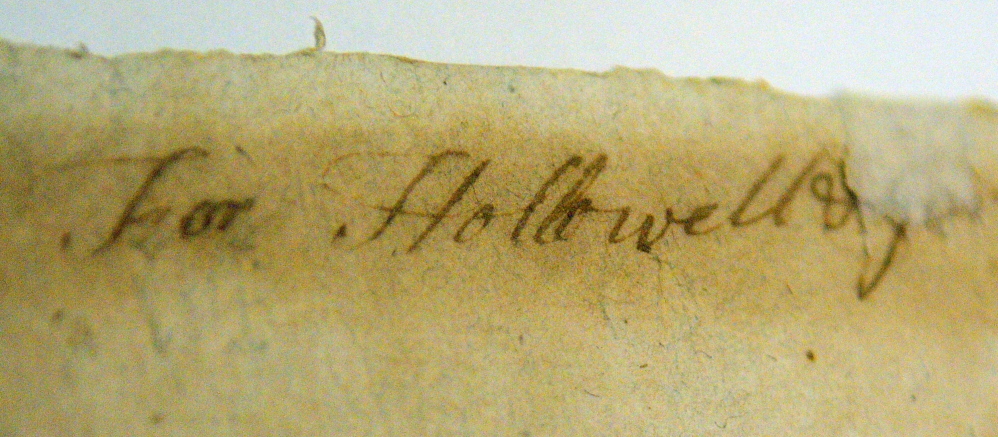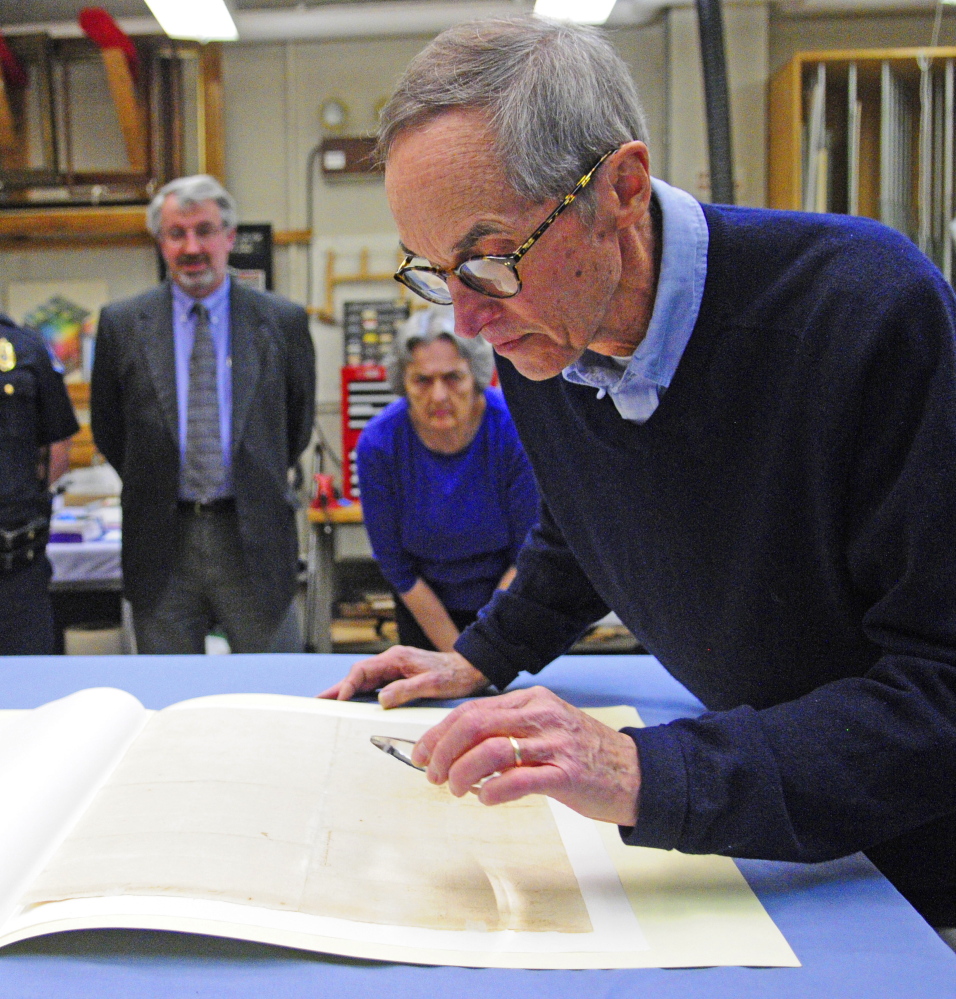HALLOWELL — The city plans to show its rare copy of the Declaration of Independence to the public for the first time in more than 20 years around this year’s Fourth of July.
It’ll require security measures, since the document could fetch $1 million or more on the open market. In the days following the Continental Congress adopting the declaration July 4, 1776, it was one of the many copies circulated across the 13 American colonies to let residents know that their leaders, then in the midst of the Revolutionary War with Great Britain, considered them sovereign.
Hallowell’s copy was one of 250 ordered by the state council of Massachusetts, which included what’s now Maine, from a printer in Salem, Mass. At least 11 copies are believed to exist, and three of those are copies that were sent to Maine, said State Archivist David Cheever.
Last week, Hallowell city councilors approved its showing later this year. Mayor Mark Walker said the document will be shown to the public at City Hall on July 3 and 4. On the first day, he’ll read the declaration, and on both days, the copy will be housed in a glass case.
“I love the timing of doing it on the Fourth of July,” Walker said. “I bet most of the people of Hallowell don’t know this exists and once the people and the schools find out about it, I think they’ll really embrace it.”
In 2011, the New York Times store listed a Salem copy for sale at $1.6 million, according to CNN. Walker said because of the document’s potential value, the city will take special security measures. It will be taken to City Hall by Police Chief Eric Nason, whose force will guard it during and between events.
In 1776, the copy was sent to Fort Western. That was in Hallowell, which included what’s now Augusta and Chelsea and parts of Farmingdale and Manchester. According to an 1870 book on the area’s history, it was supposed to be read to church congregations by ministers in Hallowell and present-day Gardiner before being returned promptly to the fort. Apparently, it wasn’t returned.
The copy didn’t resurface until 1908, when E.T. Getchell, a Hallowell native who moved to Washington, D.C., donated it to a museum housed in the Hubbard Free Library, according to library records. City Historian Sam Webber found it framed on the wall in the library’s office in 1976. It was loaned to the Maine State Museum for an exhibit from 1990 to 1993.
Cheever’s office has fought to keep the three Maine copies in public hands. In 2009, the Virginia Supreme Court ruled against Maine in the state’s well-publicized case against a collector who bought a copy that was sent to present-day Wiscasset in 2004 for $475,000 from a London book dealer. In 2001, Maine won a settlement that returned North Yarmouth’s copy of the broadside to the town. In both of those cases, the state cited a 1989 state law saying that public documents are public property unless government entities agree to give them up.
Maine invoked it again in a 1999 letter after hearing that the Hallowell library was considering selling their broadside as part of a capital campaign. However, Webber said that was never a particularly serious suggestion. In 2004, state, city and library officials agreed to a settlement that will keep the document in Hallowell’s hands and in storage at the state museum.
The Hallowell Citizens’ Initiative Committee will put the events on with the city’s help, said group member Sandra Stubbs, who said organizers hope to put similar events on every two years. Webber said it’s a rare opportunity to see a part of history that many have learned a lot about.
“I just hope that a lot of the younger people come and see the real thing,” he said.
Michael Shepherd — 370-7652
Twitter: @mikeshepherdme
Send questions/comments to the editors.






Success. Please wait for the page to reload. If the page does not reload within 5 seconds, please refresh the page.
Enter your email and password to access comments.
Hi, to comment on stories you must . This profile is in addition to your subscription and website login.
Already have a commenting profile? .
Invalid username/password.
Please check your email to confirm and complete your registration.
Only subscribers are eligible to post comments. Please subscribe or login first for digital access. Here’s why.
Use the form below to reset your password. When you've submitted your account email, we will send an email with a reset code.